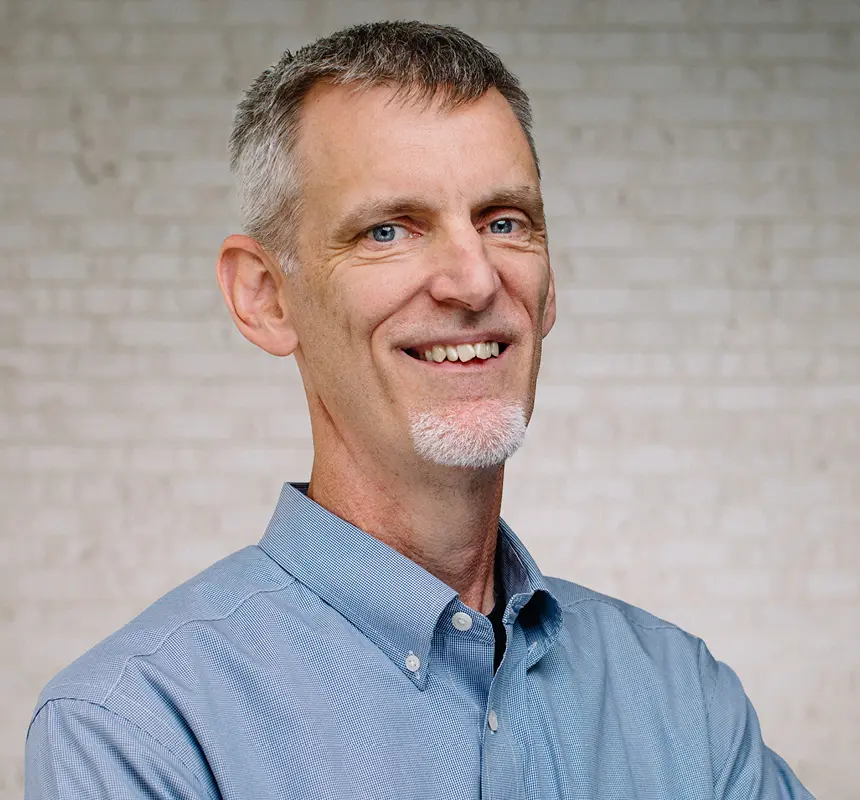This month, pastors Luke Uran and Josh Pardee wrap up a 17-week sermon series on the book of Acts. Today they talk about what God showed them, and our church family, through this series over the past four months.
This has been a long sermon series. What was your thinking behind extending it even through Christmastime?
Luke: We wanted to go a little more in-depth, especially in the beginning part of Acts where the church got its start. Not so much the individual missionary journeys of Paul. Those are important, but for me personally, the Lord has been teaching me what it means to live by the Spirit and to listen to the Spirit and to open the Word and continue to allow the Holy Spirit to illuminate that. Especially in those beginning portions of Acts, we see the apostles all being Spirit-led. That was one of the primary qualifications for any laypeople who wanted to be a part of the movement.
How long since either of you had done an extended study of Acts yourselves?
Luke: For me, the last time I did an extended study was in college.
Josh: I did one last fall. I had a class on Paul and Acts. So we were in it quite a bit.
As you look back on all the topics we’ve covered in this series, was there a particular story that resonated with either of you personally as were preparing sermons?

Lead Pastor Luke Uran, First Free Rockford
Luke: For me, because of the work the Lord’s been doing in my life, the ways in which the Spirit moved really drew my eye. It caused me to ask: Am I yielding to the leadership of the Spirit in my life in that way? So from the very get-go, whether it was in Acts chapter 2 at the day of Pentecost, or Peter and John in Acts 3, 4 and 5, you just see these big movements of the Spirit, all the credit being given to the Spirit, and that credit pointing people toward Jesus. Prior to this series, a lot of my thinking about Acts, and a lot of the things I practically lived out, was: That was the church then. And really, it was negating what I was allowing the Holy Spirit to do today. That probably has been the biggest takeaway for me.
Josh: One thing that really stuck out to me this time going through Acts was how God is at work in the very details of people’s lives. In the Gospel of Luke, John is asking for fire from heaven to be called down over the Gentiles. And now in Acts, he is there with Peter laying his hands on people, confirming that this is the church. The Spirit has moved. There are so many nuances in the way the writer Luke continues to tie all these details together from his first book to his second. With the disciples, you start to see this shift. In the Gospel of Luke, they don’t get it. They’re confused. And now in Acts they are reliving everything that they saw Jesus doing. The healings, the conversations happening with the religious leaders, even Paul’s life and his time before the religious leaders, or before Felix. It’s all just a direct layover. We saw Jesus do this. Now we’re seeing the disciples do some of the same things. And there’s the invitation: Now you go and you do the same. This is the model. This is the blueprint.
It’s really interesting how the same writer talks about the same people so differently from the Gospel of Luke to Acts.
Luke: There is night-and-day difference. Think of Peter in Acts 10, and the dream he had. He saw that white sheet come down and it was finally, “Oh, now I get it. Now I get what you meant by clean vs. unclean. Now I understand.” So it’s fun to have a front-row seat, not only to our personal transformation in this series, but how the apostles were transformed.
To what sermon or stories did you get the most response from people in our congregation?
Luke: Well, I’ve gotten a lot of comments from my December 29 sermon (laughs). Focusing on that idea of inward transformation that’s taking place. The Lord is far more concerned with that than he is with outward conformity. Shifts in the movement of the church that take place if we’re not careful.
Pastor Josh Pardee, First Free Rockford
Josh: From Acts 3, I talked about what is the role of the Bible and how do we relate to it? Sometimes we treat the Bible as if it is the end-all-be-all, when really the Bible is a means to an end. It leads us to the person of Jesus. And I used the example of a relationship with my wife. If I had a book about my relationship with my wife and I read the book, and then you asked me how is my relationship with my wife, and I told you, “Oh, it’s so good. I spent so much time with my book.”
That example seemed to really click with a lot of people. It’s so simple, but we so subtly make that move to treating the Bible as if it is God. Like (Pastor) Luke often says, “the Father, the Son and the Holy Bible.” So it’s just getting that right standing. What is the role of the Bible? How does it lead and guide us? Obviously it is super-important. But the Scriptures are leading us to an end, to a telos, to Jesus.
Luke: Josh also talked about how Jesus is far more concerned about what he is doing in you. First he has to do something in you before he can do it through you. I think that all plays a part in it as well.
Josh: For that one we looked at Paul’s life, and how significantly we see him now, 2,000 years later. But if you had been walking around then as an average Roman citizen, Paul was irrelevant. God takes serious time to develop and form him and then uses his work for years and years later. It really is coming with that open posture: God, I’m going to trust that if you are working in me, eventually that’s what’s going to pour out of me. I am just your vessel. I don’t have to make things happen here. I don’t have to manipulate circumstances. Because that would me be trying to take control again. That’s me trying to manufacture, me trying to prove that I am good enough for God, that I have done enough. And I think the gospel is a fundamental call in the opposite direction.
So there are just these subtle shifts that I don’t think we even realize are happening in our minds and in our spirits. We start looking into these patterns, these paradigms. Ultimately Jesus wants to redeem and restore and provide a better paradigm for us. But we have to be alert to them, and be able to articulate them, or we get trapped and we spend our lives living out of the wrong paradigms.
Back to that mistaken idea that the Holy Spirit’s work in the book of Acts was for that time and not for today. Did you have to fight against that? Do you feel like as Christians we all fight against that sometimes?
Luke: I think evangelicalism — not even as any one congregation or denomination — in a lot of ways has tried to almost put a lid on the Holy Spirit.
We don’t want to be those people …
Luke: Exactly. But the Spirit is the very indwelling of God in us. One of the ways that I think we as a church are continuing to grow in this area is through our Encouraging Prayer ministry. That’s one place where I see the Holy Spirit really working in a great way, and doing a lot of the things Jesus talked about in John 16. There’s comforting. There’s counseling.
I think it’s been great as the congregation has gone through this, and as so many have read The Spirit-Filled Life by Charles Stanley along with us. That’s kind of an entry-level, Holy Spirit 101 kind of thing for those who haven’t done a whole lot of studying about this. I was talking to some friends, both from Moody where I did a four-year undergrad degree, and also from Bethel College where I’m getting my master’s in divinity. We have yet to have a class that focuses on the Holy Spirit. There are sections of systematic theology that do, but it’s a week or two and then you are on to the next thing. And yet, the Holy Spirit is God dwelling within us. We just don’t teach on it or talk much about it. Because again, I think people are scared. But nowhere does Scripture tell us that we should be afraid of the Holy Spirit. That’s good for us to keep in mind as we move forward and allow the Holy Spirit to work in us, individually and as a church.
Josh: I think we have been able to lay out a Biblical argument for why this is OK, why we don’t have to fear this. I think people are open to it. Where we are now is: How does this flesh out in our life groups, our marriages, those types of things? How do we encourage this type of lifestyle?
• • •
Next week: A preview of our next sermon series, The Simplest Way to Change the World.




0 Comments